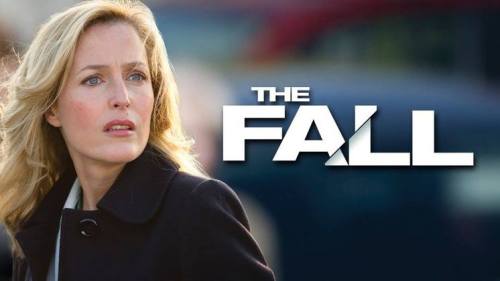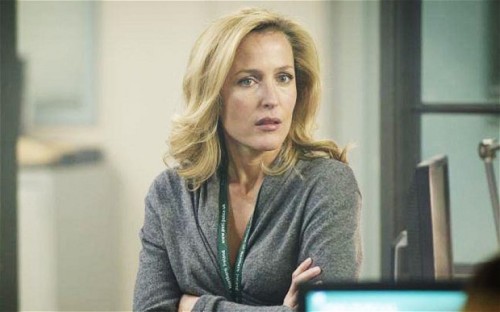 Before I read this book, I heard rumblings that it was unsatisfactory. This seemed weird, because the front and back cover were filled with critical praise. And it’s a lovely long book, set in the 1870s. My novels are set in the 1870s, so I was excited to read this one.
Before I read this book, I heard rumblings that it was unsatisfactory. This seemed weird, because the front and back cover were filled with critical praise. And it’s a lovely long book, set in the 1870s. My novels are set in the 1870s, so I was excited to read this one.
The book spans, in Dickensian fashion, nearly 900 pages and begins with the lowest dregs of society (whores near St. Giles) before taking the reader through the middling neighborhoods to the upper echelons (ladies enjoying the London season, the newly created ‘suburbs’ of Notting Hill). Though there are many characters, two are the most important.
William Rackham. At university, he was a dandy and an intellectual. As he grows older, he is intensely dissatisfied with his life. His wife is mentally ill and hates him, his father will no longer pay his expenses if William does not begin to be responsible for the family business, Rackham Perfumeries, and he’s had no great success in his attempted literary career. He is mediocre to the nth degree. Until he meets Sugar.
Sugar is a prostitute. Her mother roped her into that life when she was a tween, and it’s all she’s known since. She is unique for a whore of this era, because she is (self-)educated, and she knows how to manipulate men emotionally as well as physically. She is thoroughly unimpressed with William when she first meets him, but he is utterly taken with her. She hates men and is working on a novel about a prostitute (named Sugar) who disembowels the most pathetic of the species.
After their first night together, William decides to turn his life around. To stop dithering and to take over the family business, to make a large fortune, and to spend a good deal of it on Sugar. Within a few weeks, he’s paying for the privilege to be her only client. His fortunes continue to rise with her careful stroking of his ego (and his other parts), and her advice on matters of business and etiquette. A month or so later, he has moved her from her dingy whorehouse to her own private abode.
There’s a lot going on in the book, and a lot to wrap your mind around. William’s wife, Agnes, was raised to be the female ideal. That means she is pretty, naive, and plays the piano. It also means she has no knowledge of sex, and doesn’t understand why she bleeds every month. She thinks it’s a demonic affliction. She has similar feelings toward her baby girl.
Sugar, on the other hand, has grown up with experiences of everything vile (death, disease, poverty) and everything sexual (she’s been a prostitute since she was 13, and has a reputation for never saying no to any sexual act).
In the end, as you might expect, both female characters inspire far more empathy than William. William is a blundering, selfish, disloyal villain of a man. His least likable quality is that he feels he’s accidentally pushed into these situations where he hurts the women in his life. But he’s not. He chooses to be a complete ass, and attempts to explain it away with any available excuse. Pitiful.
The narrative style is engaging, and the writing is good. Technically good. I wasn’t bored, I wasn’t over or understimulated to the point of distraction. The characters were realistic and relatable, very fully developed. (WordPress, why do you insist that relatable is not a word when it is a completely cromulent one? Why are you now insisting that cromulent is not a word?)
So what is keeping me from writing a glowing review? Two things.
1) The Ending. It was nonexistent.
Agnes departs the story about 70% through, and we’re never entirely certain what happened to her. We get the beginning of a denouement between Sugar and William, but then we’re left to fill in the blanks ourselves. At the end of the book, I couldn’t help wondering what the real point had been. Why start the story where it started and end it where it ended? What was this story saying? After 900 pages, you don’t want to feel that way.
2) The strange and constant fixation on bodily fluids.
Here’s the thing about fiction. You’re taking a huge data set (all things you know about the world) and you’re editing. You’re taking out what’s unimportant, and leaving in only what furthers your story. This can mean you take out the guy standing in line at the grocery checkout. Or it can mean you leave in the checkout line, when the guy has a complete meltdown because the lady in front of him has more than 10 items in her basket and how dare she. It depends on the story. But there are a few almost universally omitted things. Like trips to the toilet.
How many times do Jane Austen’s characters mention a chamber pot? Did anyone from the Great Gatsby stop to pee? What about the Hunger Games? How on earth did they go to the bathroom while attempting to not be killed?
Why do writers omit it? Because it detracts from the story. It’s not important, it’s just something that has to be done. It only makes its way into the story if it’s suddenly significant. The shower scene in Psycho, the heinously awful scene in Trainspotting that nearly made me sick, and I can’t even think of a third one.
In addition to detracting from the story, it also conflicts with the purpose of the characters. They are simulacra; they are not human. The purpose of a book’s characters is to help us understand humanity, not to accurately capture humanity. You don’t need to know that the character sneezed (unless the character is sick), or that they have something stuck in their teeth (unless they’re on a first date!). Their humanity is exposed only when it is in service to the story. The rest of the time, it isn’t present.
This author, Michael Faber, does not approach literature this way. He is somewhat obscenely fascinated with body fluids. There were many descriptions of the sound, smell, and sensation of someone (usually women) emptying their bladders or their bowels. There were many mentions of the slippery dribbles of semen down women’s thighs. There was a particularly grotesque scene depicting a woman having a miscarriage on a public toilet.
The worst part, for me, was descriptions of the red inflamed skin of the vulva of a young girl, because she habitually wets the bed.
I’m not a prudish person, in general. I’m not overly fond of raucous humor, but I am not the type of person to pretend I don’t have a human body. And a human body sometimes means unfun things, like bogeys and belches and menstruation. But this was too much for me. It made me uncomfortable, by the end of the book. And it served absolutely no purpose, that I could tell. The miscarriage was obviously a ‘plot point’, but is there some reason I needed to know that the maid scrunched up her nose at the smell of diarrhea on the 3rd day the governess was in the house? No. Did I need to have my attention directed to the vulva of a young girl? No.
It was creepy. It was unnecessary. I’m not in favor of censorship, I’m not saying this should be taken off the shelves. But…I wouldn’t recommend reading it. It’s more scatological than it is meaningful. Although if you have a fetish for urine or feces, this might be just the book for you.
There is a miniseries. It came out in 2011 and stars Chris O’Dowd plays William Rackham.
 Though I’m sure they’ve removed much of the strangely biological portions, I’m still afraid to watch it. I adore Chris O’Dowd, particularly since Moone Boy, and since I saw him on Broadway in Of Mice and Men. I’m not sure I can handle watching this. I’m working up my courage, but no promises.
Though I’m sure they’ve removed much of the strangely biological portions, I’m still afraid to watch it. I adore Chris O’Dowd, particularly since Moone Boy, and since I saw him on Broadway in Of Mice and Men. I’m not sure I can handle watching this. I’m working up my courage, but no promises.












